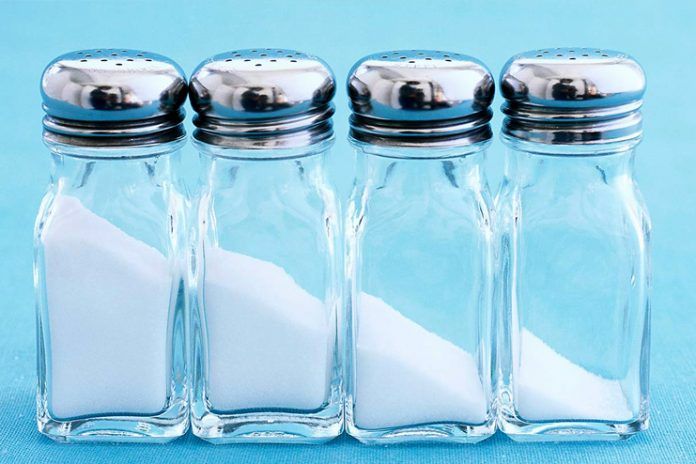Affiliate Disclaimer
Some links in this article are affiliate links. We may earn a small commission if you make a purchase through these links, at no extra cost to you. We only recommend products we find useful to our readersWe live in a world where stress and workload dominates our life. Can you even imagine making it worse? Well, we often times end up doing just that. Uncontrolled salt intake is often times the most common reason behind the deteriorating health. In order to reduce salt intake quickly, it is important to ensure that you don’t divulge in anything worse.
Reducing salt intake benefits the overall well being of an individual.
In this article, we are going to be sharing some of the best ways to reduce salt intake in body for a healthier physical and mental state of mind.
Ways to Reduce Salt Intake
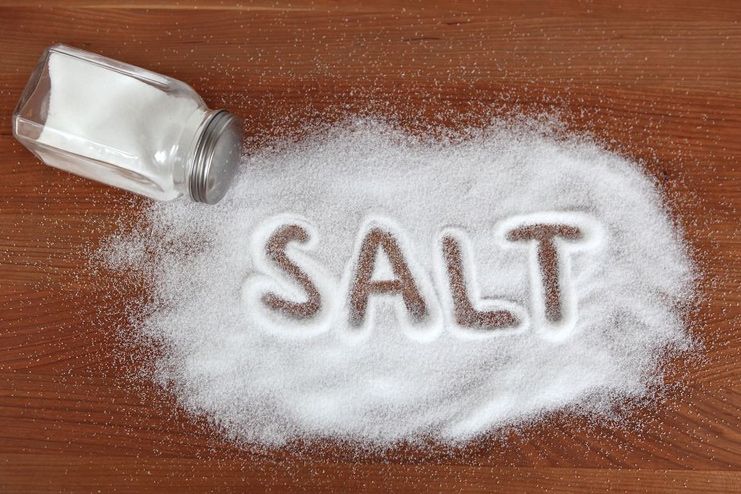
It is quite important to ensure that one has a close eye on how much salt they are consuming because the uncontrolled consumption of the same can actually end up adversely affecting one’s health. One of the most common side effects of excess salt intake is hypertension which majority of people, nowadays, suffer from.
In this section of the article, we are going to be sharing some of the effective ways on how to reduce salt intake, so hold on and scroll up.
1. Abandon Packaged Meats
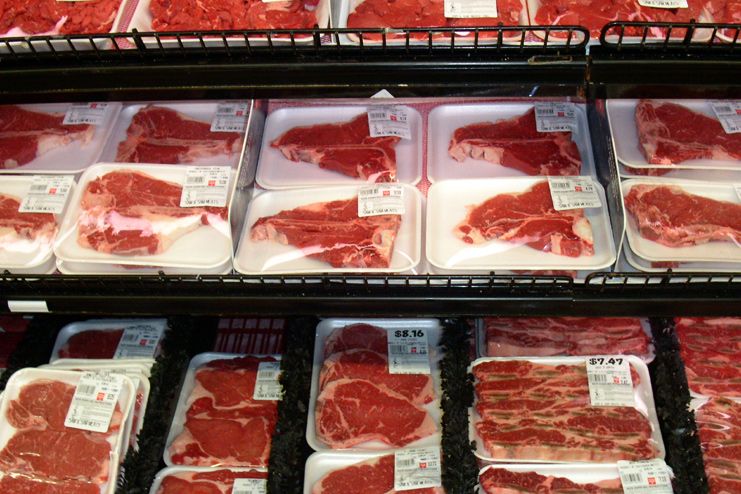
We often tend to incline more towards packaged meat rather than relying on the fresh variant of it. While the prior can be of better “taste”, the same doesn’t necessarily have to be a healthy variant amidst it all.
Given the fact that majority of the packaged meat come pre-salted and not just lightly but heavily, makes it a very dangerous component to add to our day to day diet. Whatever the condition be, it is important to limit the salt consumption to 1-2 tablespoon per day and ensure that the mark is not crossed.
If you are opting for bacon or ham because of the fact that they are much easier to cook and prepare, it is time you make some changes. Instead of getting the preserved and heavily salted variants of meat, get a fresh cut of it to reduce salt intake quickly and drastically.
2. Avoid Canned Fruits
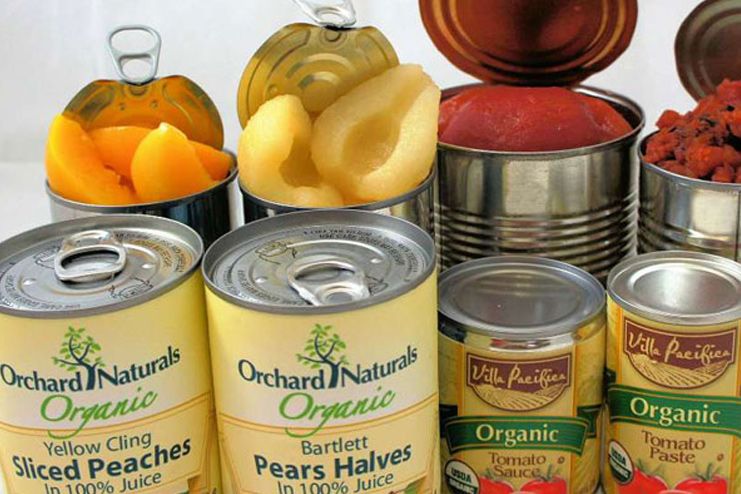
Not just canned meat, even canned fruits have negative impacts on your overall health because of the kind of salt percentage they have in them. Whatever the consequences be, it is always better to stick to the actual fruits which have their natural sodium and sugar content in them.
Adhering to the canned version of these often tend to end up being a negative impact on your life because of the fact that they are preserved and are not the real but the synthetic versions of the fruits that you eat.
3. Cut Down the Breads and Rolls
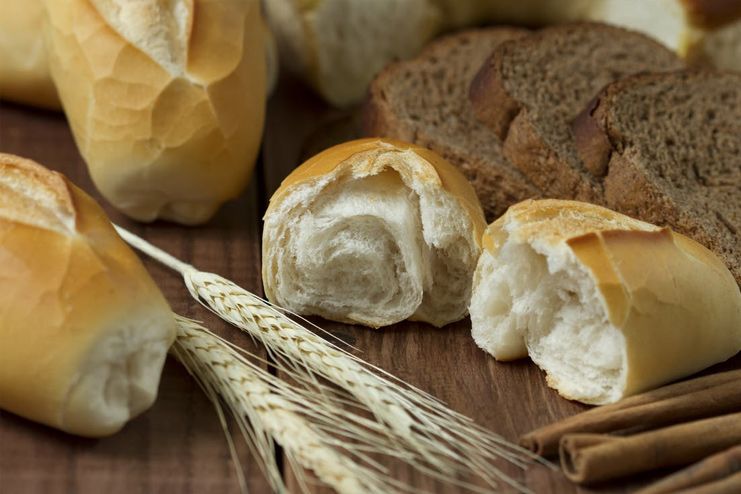 We might not actually know this but even the bread that we end up consuming in our breakfast has quite a lot of sodium (R) which is unprecedented. Just one piece of bread tends to contain around 100-200 mg of sodium and well, we don’t just stop on one slice, now, do we?
We might not actually know this but even the bread that we end up consuming in our breakfast has quite a lot of sodium (R) which is unprecedented. Just one piece of bread tends to contain around 100-200 mg of sodium and well, we don’t just stop on one slice, now, do we?
If you use bread as a staple for your breakfast, it is time to make some good changes that impact your overall well being by reducing salt intake significantly. Switch to something on the healthier aspect, a bowl of oatmeal with a pinch of salt works just as fine and is quite fulfilling on your stomach.
4. Cook from Scratch
 Cooking from scratch might actually seem like a lot of hard but trust me; it actually can be a very beneficial step if you are looking for ways to cut down the excess salt intake from your body. Whatever the situation calls for, it is quite important to ensure that one sticks to the common grounds of the minimum salt intake on a daily basis.
Cooking from scratch might actually seem like a lot of hard but trust me; it actually can be a very beneficial step if you are looking for ways to cut down the excess salt intake from your body. Whatever the situation calls for, it is quite important to ensure that one sticks to the common grounds of the minimum salt intake on a daily basis.
The best way to ensure the same is by cooking everything from scratch (R). When you know what you are cooking, it does become a lot easier to keep a tab on how much salt you are putting into the food. This helps you moderate the amount and prevent it from overriding the normal levels of the sodium in the body.
5. Make Healthy Switches

Often times, people tend to just give up on their easy options to make healthier choices. If you want to enjoy the same kind of foods but don’t want to completely give up on them, the best way to enjoy both is by switching them with their healthier variant.
If you are craving some fast food, just switch to something with low sodium content. For example, if you are craving some tuna salad, instead of using the packaged and preserved tuna which is loaded with a lot of sodium, switch to the freshly grilled tuna instead. Just doing that should make all the difference.
Also, if you are having a salad outside, you can reduce salt intake quickly by switching up the dressings with something made on your own or skipping the dressing altogether. For the most part, the dressing is the one that tends to contain the majority of the sodium in the entire bowl of salad.
6. Ask the Waiters

When you are making everything from scratch, you are in control of what and how much salt you are consuming. But, when you go out to eat, there is literally no way to deduce how much salt you are consuming or how much the chef is putting into the food. This is where it gets tricky.
If you are implementing ways to reduce salt intake in the body, it is necessary to just ask your server the amount of sodium that the dish would possibly have. If you want, you can even opt for ways to ask your server to convey the message to the chef of how much salt you need in your food. Being strict about the salt content can actually help you cut down the excess consumption and protect you from the negative implications that excess sodium has on the body.
7. Check the Labels Before Purchasing

Yet one of the answers to how to reduce salt intake is by checking the packaging before purchasing any food or perishables. It is quite important to ensure that you slow down with the hurled purchases and take your time to assess the amount of sodium each of them has.
It might actually seem like something a lot taxing and time consuming, but the outcome is definitely worth the hassle. Being aware of how much sodium you are getting per serving helps you assess how much you need to add or avoid in the food further.
8. Switch to Fresh Fruits and Veggies
 One of the easiest ways to reduce salt intake quickly is by making healthier switches to better options like that of fresh fruits and vegetables. Fresh produce has its natural sodium content in it which is actually beneficial for the health and doesn’t have any negative impacts on one’s health.
One of the easiest ways to reduce salt intake quickly is by making healthier switches to better options like that of fresh fruits and vegetables. Fresh produce has its natural sodium content in it which is actually beneficial for the health and doesn’t have any negative impacts on one’s health.
Benefits of Reducing Salt Intake In Body
 Reducing salt intake benefits the overall well being of an individual. If you are seriously trying to cut down the excess salt intake, these above mentioned ways can actually help you do so. Whatever the situation calls for, make sure that you stick to the routine and don’t get deflected with the situation.
Reducing salt intake benefits the overall well being of an individual. If you are seriously trying to cut down the excess salt intake, these above mentioned ways can actually help you do so. Whatever the situation calls for, make sure that you stick to the routine and don’t get deflected with the situation.
Some of the common benefits of a low-sodium diet include:
1. Maintains Body Balance
One of the most common benefits of reducing salt intake is that it helps maintain harmony between the existing electrolytes in the body. It influences the levels of the other existent electrolytes in the body too which is one of the primary reasons why a low sodium diet is actually beneficial for your health.
2. Maintains Hydration
If you didn’t know any better, the excess or even the lack of sodium in the body can actually end up affecting the overall hydration of the body which is definitely not something you want. Excess sodium ends up in water retention which often has quite a lot of negative implications on one’s body.
3. Promotes Weight Loss
It has been found that people who abide by a low sodium diet plan tend to cut down the excess fat in the body at a faster pace than the people who don’t. This is one of the reasons how reducing salt intake benefits the overall metabolism and fat storage in the body.
4. Boosts Energy
While the same may actually sound odd and out of place, consuming less salt actually does contribute to better energy levels in your body which makes you feel more energetic and active.
5. Keeps Hypertension at Bay
Yet one of the reducing salt intake benefits, and possibly the most important one in the lot is the fact that it aids in keeping the blood pressure in check. Higher levels of sodium are found to be correlated with excess hypertension; this subsequently helps in removing the tension strain in the body.
6. Keeps Diseases at Bay
The excess of sodium in your diet often tends to end up causing a wide range of disease, the organ at the most risk being that of the kidneys. Keeping and maintaining a low sodium diet actually does help in keeping these diseases at bay. Not just that, there have also been reports of stomach cancer and other forms of intestinal disorders associated with the excess sodium in the diet, and subsequently in the body.
7. Keeps the Taste Buds Intact
Whatever the condition be, if you didn’t know any better, the excess of salt intake often times end up affecting the taste buds, killing them in the process over the prolong and excess consumption of salt in the diet. This is the reason why a low sodium diet is actually quite beneficial if you want your taste buds intact.
8. Prevents the Risks of Strokes
One of the most common benefits of reducing salt intake is the fact that it helps in preventing the risks of strokes and other major heart diseases. Salt is actually considered as one of the most common and prevalent reasons behind the blood pressure levels. If the same is kept in check, it not just positively impacts the overall heart health but also keeps your brain functioning properly.
9. Healthy Bones
Not just that, even the excess of sodium in the body ends up affecting the calcium content in the bones. This can often even lead to conditions like that of osteoporosis. Switching to a low-sodium diet is actually beneficial in keeping the same at bay.
10. Diabetes
Yet another benefit of low sodium intake is its impact in diabetic patients. Salt has the possibility of worsening the condition of diabetes by heightening blood pressure. If that is something you want to avert, reduce the salt intake and switch to healthier options.
11. Relieves Bloating
Stomach bloating can often be a very common reason because of the excess of salt consumption. This is primarily because of the fact that an excess amount of sodium ends up causing water retention which makes you feel bloated and a full majority of the time.
12. Keeps Kidney Problems at Bay
Yet another and possibly the last in the list of benefits of reducing salt intake is the fact that it keeps the kidney in a good and healthy condition.
If you have been implementing ways to reduce salt intake quickly, it is always best to start with the basics and work your way up from there. It is not always possible to do so right off the bat because eating something with little to no salt is not favourable. Adapt to the changes gradually and the same will actually end up impacting your overall well being.
In this Article












